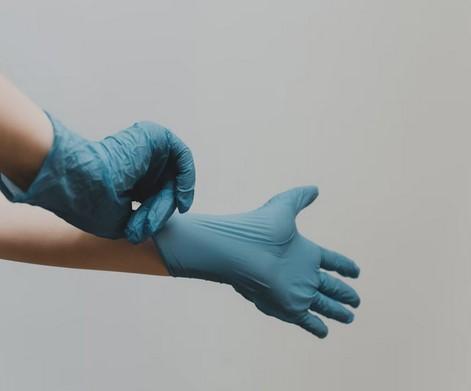Science Week is back with its open days, guided tours, workshops, gyncanas, games, conferences, film screenings, and even a festival of scientific songs … Until November 14, free, face-to-face proposals await us and virtual, which cover all kinds of topics, although this year the coronavirus, volcanology and the European Green Pact are the main protagonists.
Only the Higher Council for Scientific Research (CSIC) has prepared about 350 activities in Andalusia, Aragon, Asturias, the Canary Islands, Cantabria, Castilla y León, Castilla-La Mancha, Catalonia, the Valencian Community, Galicia, the Balearic Islands and Madrid that can be consulted on the web www.semanadelaciencia.csic.es, where it is also explained how to reserve a place in them.
In Andalusia, visitors will be able to take a trip back in time through the animated short Operation mohor, with which the Experimental Station of Arid Zones in Almería recounts the great feat of rescuing and conserving the gazelle dama mohor, which was being exterminated at At the beginning of the 70s, while in Cádiz, the Andalusian Institute of Marine Sciences proposes the workshop ‘Finding Nemo’, on how ocean currents work.
In Aragon, the Institute of Nanoscience and Materials (CSIC-UZ) has prepared a game in which participants will face their rivals using the skills of bacteria and the CSIC’s Institute of Carbochemistry, a workshop with demonstrations and interactive models for know the methods of capturing and storing CO2 in industrial plants.
In Asturias, the University of Oviedo, has organized workshops in which girls and boys will be able to observe different microorganisms under the microscope and prepare their own Petri dishes, and get closer to the cellular world.
In the Canary archipelago, the main protagonist will be the La Palma volcano, whose eruption can be followed in person and online, while several CSIC researchers tell the history of volcanic activity on the island, the phenomenon and its consequences .
In Cantabria, the Instituto de Física de Cantabria (IFCA, CSIC-UC) joins the Code hunting game, the ‘astronomical treasure hunt’, a video game in which participants will navigate a world map solving enigmas. To be able to play, all you need is a smartphone, an Internet connection, a Telegram account and a QR code reader.
Castilla y León, the Institute of Molecular and Cellular Biology of Cancer (ICMCC, CSIC-USAL) proposes a scientific route through the animal facility of genetically modified organisms at the University of Salamanca. The visit will be complemented with a debate on bioethics in animal experimentation.
In Castilla-La Mancha, the Hunting Resources Research Institute offers the exhibition ‘Hunting’, a journey through 400,000 years of hunting history, its importance in the conservation of ecosystems and biodiversity.
In Catalonia, the Institute for Environmental Diagnosis and Water Studies (IDAEA-CSIC) invites us to learn about two topics: the European Green Pact and the coronavirus. According to the World Health Organization, 9 out of 10 people are exposed to levels of pollutants that exceed recommended limits. In this workshop, the public will know what these pollutants are, where they come from, how to reduce them and the importance of natural ventilation.
In the Valencian Community, the Desertification Research Center proposes “Desertroom”, an escape room in which the public must model a landscape with their own hands and learn to set up a homemade weather station in different workshops where they will have to find the clues to solve the enigma posed and escape with science.
In Galicia, the CSIC has prepared the Scientific Song Festival: CSICvisión, a show where the public will decide which is the best song in a repertoire full of scientific content.
In the Balearic Islands, on the occasion of the European Year of the Railroad, the Mediterranean Institute for Advanced Studies (IMEDEA, CSIC-UIB) invites the public to meet its scientists in person to discuss their research in a series of ‘speed dates’ in the emblematic Train of Sóller.
Finally, in Madrid, the offer is almost endless. Among its proposals are, a tour of emblematic places of the city such as Puerta del Sol, Gran Vía or the arcades of the Plaza Mayor, with the help of the Center for Human and Social Sciences (CCHS-CSIC), whose scientific routes will offer to the attendees new perspectives of the city, and a geological itinerary on foot through Pedriza del Manzanares, in the Guadarrama National Park by the Geological and Mining Institute of Spain.





